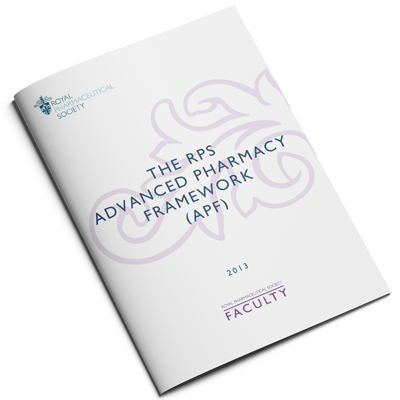
Over the past decade, many frameworks and tools have evolved to support professional development across the profession. The RPS Advanced Pharmacy Framework (APF) is a framework for identifying and recognising the stage of practice. It is applicable to all sectors and nations, building on what have previously been shown to work. This can form the basis of the professional portfolio.
This framework builds on the widely used Advanced to Consultant Level Framework (the ACLF), to ensure it is applicable to all sectors and specialisms across pharmacy in Great Britain (GB). Evidence supports its use across the profession, and more widely, for the development of both advanced and specialist practice, applicable to all who work in pharmacy.
The APF is intended for use once early or foundation years have been completed. It forms a useful supportive framework to gather evidence of advancement across the core competencies. It is also used as an enabling framework to 'host' a range of professional curricula which identify the key knowledge, skills, experience and behaviours, needed in different scopes of practice.
Clusters and competencies
The APF identifies six key areas (also known as clusters) that are important for development in and demonstration of advanced stages of practice, independent of sector.The APF comprises 34 competencies located across 6 clusters.